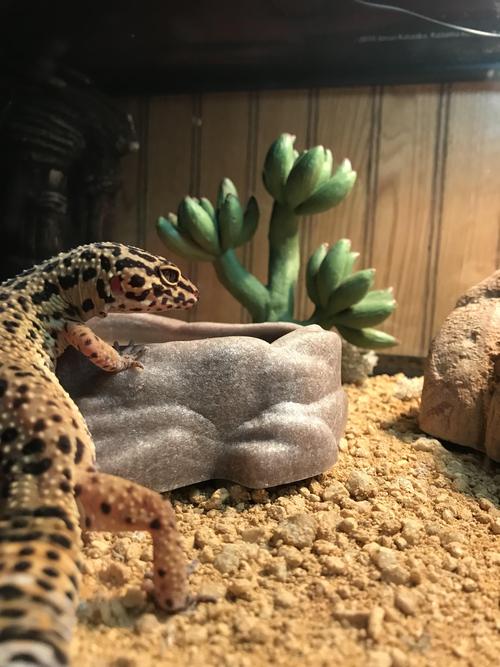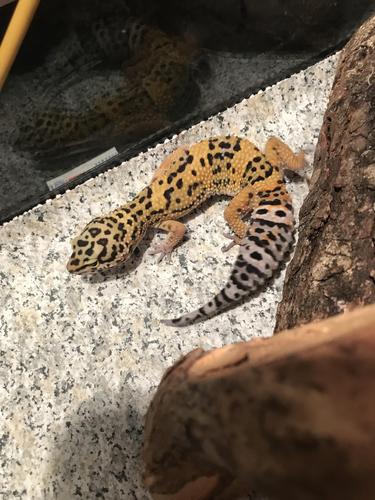
Do Leopard Geckos Bite?
Leopard geckos, with their spotted patterns and docile nature, have become increasingly popular as pets. One common question that often arises among potential owners is whether these geckos bite. Let’s delve into this topic and explore the various aspects surrounding leopard gecko bites.
Understanding Leopard Gecko Behavior
Before we address the biting issue, it’s essential to understand the behavior of leopard geckos. These geckos are nocturnal creatures, meaning they are most active during the night. They are known for their calm and gentle demeanor, but like any animal, they can exhibit defensive behaviors.

Leopard geckos have a unique way of communicating. They use a combination of body language, vocalizations, and scent marking to express their needs and emotions. Understanding these cues can help prevent misunderstandings and potential biting incidents.
Why Do Leopard Geckos Bite?
There are several reasons why a leopard gecko might bite:
-
Feeling Threatened: If a gecko feels threatened or scared, it may bite as a defensive mechanism. This can happen if you handle them roughly, surprise them, or if they are in a new environment.
-
Handling Issues: Improper handling techniques can lead to biting. For example, picking up a gecko by its tail or handling it too roughly can cause stress and trigger a bite.

-
Health Concerns: A gecko that is ill or in pain may bite as a way to communicate its discomfort. Signs of illness include changes in appetite, weight loss, or lethargy.
-
Maturation: Male leopard geckos can become more aggressive as they mature. This aggression may manifest as biting, especially during the breeding season.
Preventing Biting
Understanding the reasons behind biting can help you take steps to prevent it:
-
Proper Handling: Learn how to handle your gecko correctly. Avoid picking them up by the tail, and handle them gently and calmly.
-
Gradual Introduction: If you’re introducing a new gecko to your existing pet, do so gradually and in a neutral environment.
-
Regular Health Checks: Keep an eye on your gecko’s health and seek veterinary care if you notice any signs of illness or discomfort.
-
Provide a Safe Environment: Ensure your gecko has a comfortable and secure habitat with hiding spots and a proper temperature gradient.
What to Do If a Bite Occurs
Even with the best preventive measures, a bite can still happen. Here’s what to do if your leopard gecko bites you:
-
Stay Calm: Remain calm and avoid making sudden movements that could provoke the gecko further.
-
Wash the Wound: Clean the bite area with soap and water to prevent infection.
-
Seek Medical Attention: If the bite is severe or shows signs of infection, such as redness, swelling, or pus, seek medical attention.
Conclusion
While leopard geckos can bite, understanding their behavior and taking appropriate preventive measures can significantly reduce the risk. With proper care and attention, these fascinating creatures can make wonderful pets.
| Reason for Biting | Preventive Measure |
|---|---|
| Feeling Threatened | Handle gently, avoid sudden movements, and provide a safe environment |
| Improper Handling | Learn proper handling techniques and avoid picking up by the tail |
| Health Concerns | Regular health checks and veterinary care |
| Maturation | Separate mature males during breeding season |







